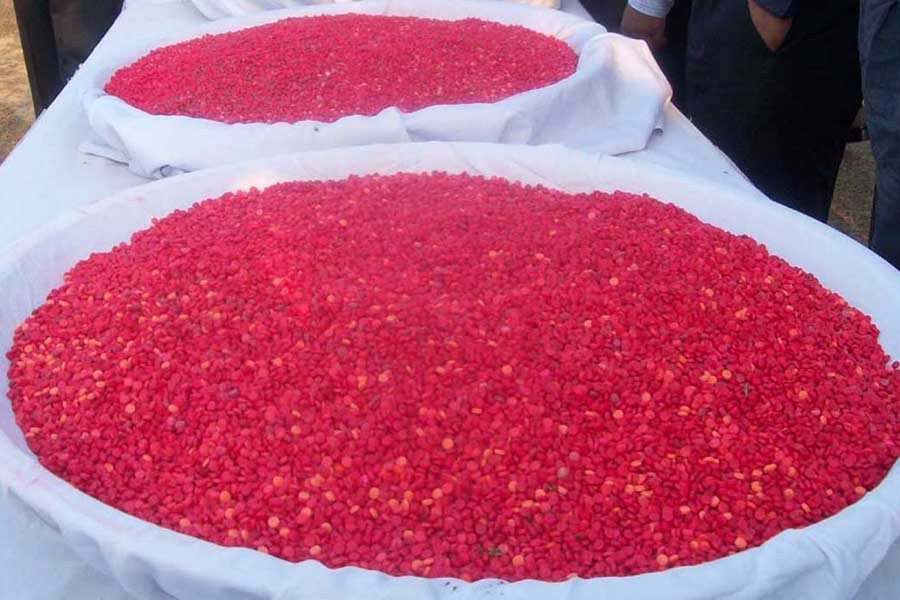The government declared a policy of zero tolerance against drug abuse. A policy such as this suggests that drug abuse in our country is steadily and significantly on the rise. In today's world it is a matter of serious concern as the UN statistics of 2018 reveals that the problem has ensnared teenagers more intensely than ever before. Though Marijuana is the most commonly used illicit drug according to the National Survey on Drug Use and Health, in 2015 yaba is a lead role player among toxic substances in Bangladesh.
The yaba trap (trade) has engulfed the teenagers and according to a newspaper report, use of Yaba increased by 80 per cent in last 7 years (2011-2017). Against the backdrop of a deteriorating spectacle of drug trade a policy of zero tolerance of the government is imperative but is likely to make very little impact as people on both sides of the rope are equally powerful. Annual reports on drugs by the government reveal that the quantity of yaba recovered in 2014 was 6.5 million, while it was 20.2 million in 2015, almost 30 million in 2016 and 38.1 million in 2017. This gives us a picture of fast spreading yaba menace. Yaba's source is Myanmar and it is routed through 15 spots on the Bangladesh-Myanmar border. Recovered yaba is the tip of an iceberg where the major portion of it lies hidden under water. According to a report by UN Office of Drug Control (UNODC), yaba recovered is only 10 per cent of yaba shipped into this country. The number of yaba tablets sold annually is 400 million which is worth about Tk 60 billion (Tk150 per tablet) and the total amount spent by drug users is double the annual budget for the Border Guard Bangladesh (BGB) and half the budget for the Bangladesh Police.
Drug trade is rampant, but not beyond repair. The country has not yet reached a state like Mexico and Columbia where federal army armed with heavy weapons have to regularly combat the drug cartels. The governments and the drug lords are regularly at war with each other. The drug lords in Bangladesh are also gaining in strength and influence and are turning into a threat to national security.
Economists have categorised drugs as demerit goods as they consider consumption of demerit goods as damaging and harmful and want the governments to prohibit use of demerit goods. Of the greatest concern in respect of demerit goods is their abuse.
In US where the drug market is considerably large and annual average sale of cigarettes and liquor is US$50 billion and US$30 billion respectively, the amount spent on illegal drugs is not known which could be anything between US$20-50 billion. Abuse of addictive drugs is a vital issue in formulating public policies and that is exactly what drove the US government to formulate policies prohibiting marketing and consumption of drugs and declaration of drug abuse as a criminal offence. Despite all these punitive measures, neither the demand for the addictive drugs nor the volume of drug business has gone down.
Under pressure of restrictive government measures occasional drug users in our country resort to comparatively cheaper substances while regular addicts care very little about government restrictions and resulting upward shift in prices. They procure drugs at high prices and involve themselves in various social crimes when they run out of money.
With approximately 247 million drug users worldwide drug abuse has reached epidemic proportions across the globe. Additionally drug abuse stubbornly continues to impose individual, familial and social dysfunction and experts look for the best ways to counter this plague. With this information in hand, drug policymakers can design more effective prevention and treatment programmes. Combating drug abuse requires national unity and a social awareness movement.


